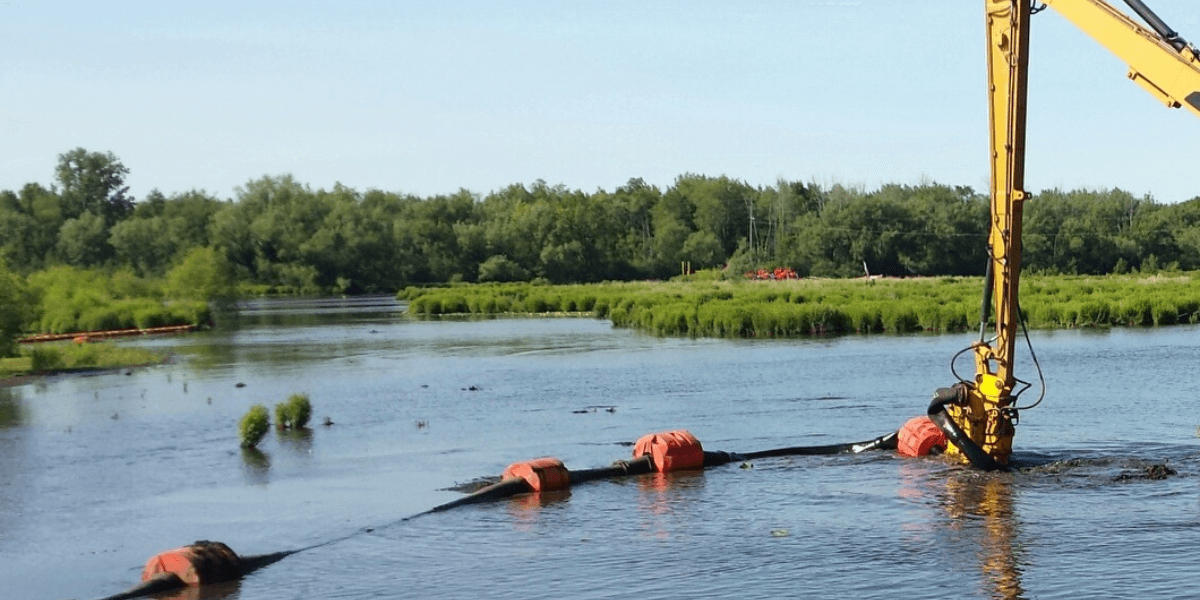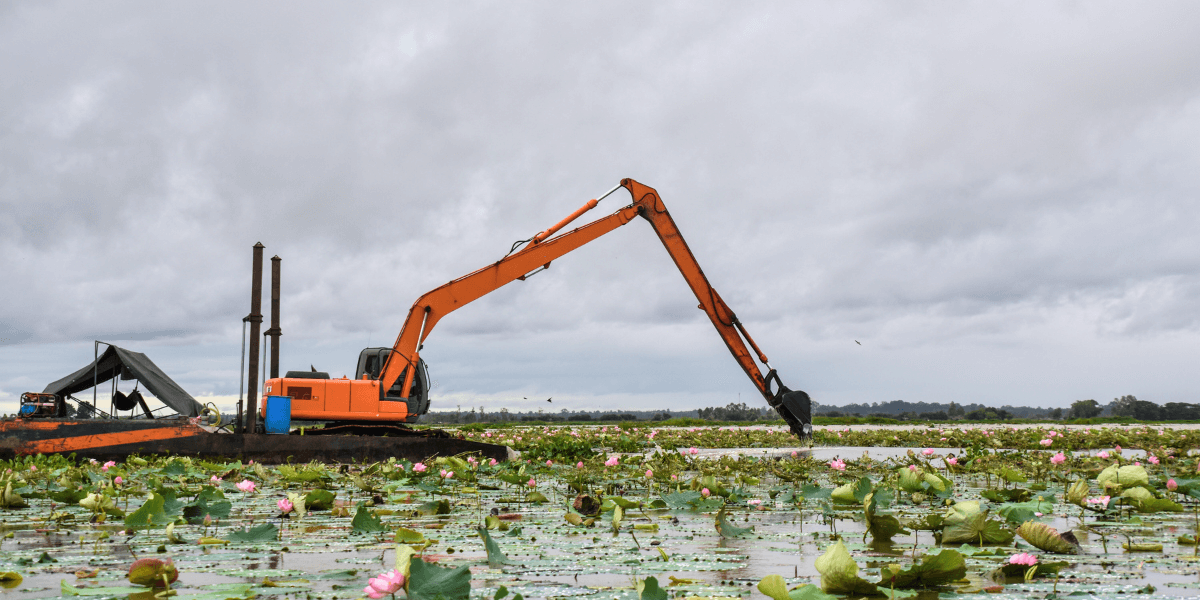5 Technological Advancements We're Excited to See More of in 2023
Dredging and the civil engineering and construction industry are in desperate need of a technological overhaul. Material shortages, labor crises and...
One of the most pressing global concerns right now is access to clean, potable water. It’s evident in places like South Africa, where entire cities faced the threat of having no water at all, and also in communities throughout the western United States.
As the global population continues to increase, there is an increased need for more inland waterways and other water retention structures like reservoirs and dams. Fortunately, dredging can play a role in helping communities improve access to water and with water management.
Here's more information on how dredging can help with water management.
Reservoirs have been a major way to supply large populations with adequate amounts of water for centuries. They also serve as a habitat and source of food for the plants and animals that live in the area around a reservoir.
While reservoirs are a vital part of water management for modern cities, they are not a perfect system. Today’s reservoirs are extremely well constructed, but their efficiency can be impacted by processes like deforestation, pollution, and natural erosion. All of these processes introduce dirt, silt, particulates, and debris into the reservoir.
This all builds up at the bottom of the reservoir, taking up precious space that water could occupy instead. Dredging equipment can be used to remove this built-up material from the reservoir, improving the storage capacity.
Like reservoirs, dams are an instrumental part of modern water management. Dams are also used for other purposes, like hydroelectric plants, and for local agricultural needs. Like reservoirs, however, sedimentation can build up along the bottom and edge of a dam.
This accumulation of sands, silts, and other debris limits the amount of water that can be stored in the dam. Similarly, these sediments can put stress on the turbines and other components that make up the dam. Dredging removes these threats to the efficiency of the dam and prevents problems down the line.
While we often think of rivers, channels, ponds, and canals as being fixed and immutable, the reality is that these bodies of water change naturally over time. As debris accumulates in a certain bend or a blockage forms, the water will course around it, widening some areas, while limiting the amount of water flowing to others.
While this may be a natural process, it’s not always convenient for human needs, as the redirected course can keep people from getting the water they need. Dredging is a regular part of the use of waterways like these. By dredging a river or channel, we can predict where the water will go, and make sure that agricultural fields or dams receive enough to meet their needs.
Our water sources are extremely delicate, making them vulnerable to contamination. Once this occurs, it renders that water source unusable unless something is done.
Dredging for environmental remediation purposes has proven to be one of the most effective ways of making a water source accessible again. The dredge can be used to precisely remove contaminated soils or materials, and preventing the spread of the contaminants.
In addition to environmental dredging, water well servicing plays a vital role in maintaining water quality and ensuring that well systems operate efficiently. Regular servicing can prevent contamination and improve the long-term productivity of water wells, especially in areas where water access is critical.
If you’re undertaking a maritime dredging project, connect with U.S. Aqua Services. We offer dredging equipment rentals, as well as site visits, so you can have the exact equipment and information you need for your project.
Contact us today to find out more.
Dredging and the civil engineering and construction industry are in desperate need of a technological overhaul. Material shortages, labor crises and...

1 min read
When most people think of dredging, they picture heavy equipment scooping sediment from the bottom of a river or harbor. And while that's part of the...

Living near a body of water may raise concerns about dredging operations and their impact on property values and the ecosystem. Dive into this...